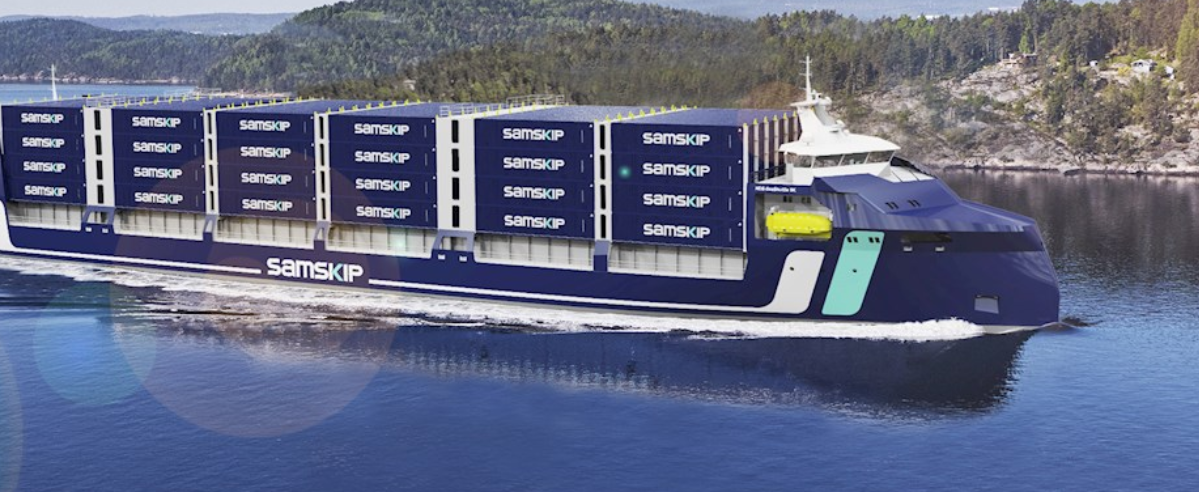ABB announced today it will deliver a comprehensive power distribution system for two newbuild short-sea container ships of the global logistics company Samskip Group headquartered in Rotterdam, Netherlands. The vessels will be among the world’s first of their kind to use hydrogen as a fuel.
Built by Cochin Shipyard Ltd, the largest shipbuilding and maintenance facility in India, the 135-meter ships are due for delivery in the third and fourth quarters of 2025, respectively. Both vessels will operate between Oslo Fjord and Rotterdam, a distance of approximately 700 nautical miles.
“In addition to the integration of hydrogen fuel cells, ABB’s comprehensive package includes the new, compact version of ABB Onboard DC Grid power distribution system that will ensure the optimal use of energy on board. The vessels will also feature ABB’s energy storage solution control, with ABB Ability System 800xA automation solution, ensuring seamless operation of onboard equipment. Leveraging ABB Ability Remote Diagnostic Systems, the vessels will benefit from optimized safety and performance through 24/7 remote support,” stated ABB.
Fuel cells turn the chemical energy from hydrogen into electricity through an electrochemical reaction. With the use of renewables to produce hydrogen, the entire energy chain will be clean. Hydrogen fuel cell technology is considered one of the most promising solutions to support the shipping industry’s decarbonization agenda, with the potential to significantly reduce greenhouse gas emissions and increase energy efficiency.
Samskip’s vessels will be powered by a 3.2 MW hydrogen fuel cell each, with diesel generators installed for backup. The logistics group, which aims to achieve net zero by 2040, anticipates that each vessel will be able to avoid around 25,000 tons of CO2 emissions a year when powered by fuel cells and by using green shore power at the port of call.
The project is co-funded by Norwegian state enterprise ENOVA. Operating under Norway’s Ministry of Climate and Environment, ENOVA promotes a shift towards more environmentally friendly energy consumption and production, as well as the development of energy and climate technology.
This content is protected by copyright and may not be reused. If you want to cooperate with us and would like to reuse some of our content, please contact: editors@pv-magazine.com.









By submitting this form you agree to pv magazine using your data for the purposes of publishing your comment.
Your personal data will only be disclosed or otherwise transmitted to third parties for the purposes of spam filtering or if this is necessary for technical maintenance of the website. Any other transfer to third parties will not take place unless this is justified on the basis of applicable data protection regulations or if pv magazine is legally obliged to do so.
You may revoke this consent at any time with effect for the future, in which case your personal data will be deleted immediately. Otherwise, your data will be deleted if pv magazine has processed your request or the purpose of data storage is fulfilled.
Further information on data privacy can be found in our Data Protection Policy.